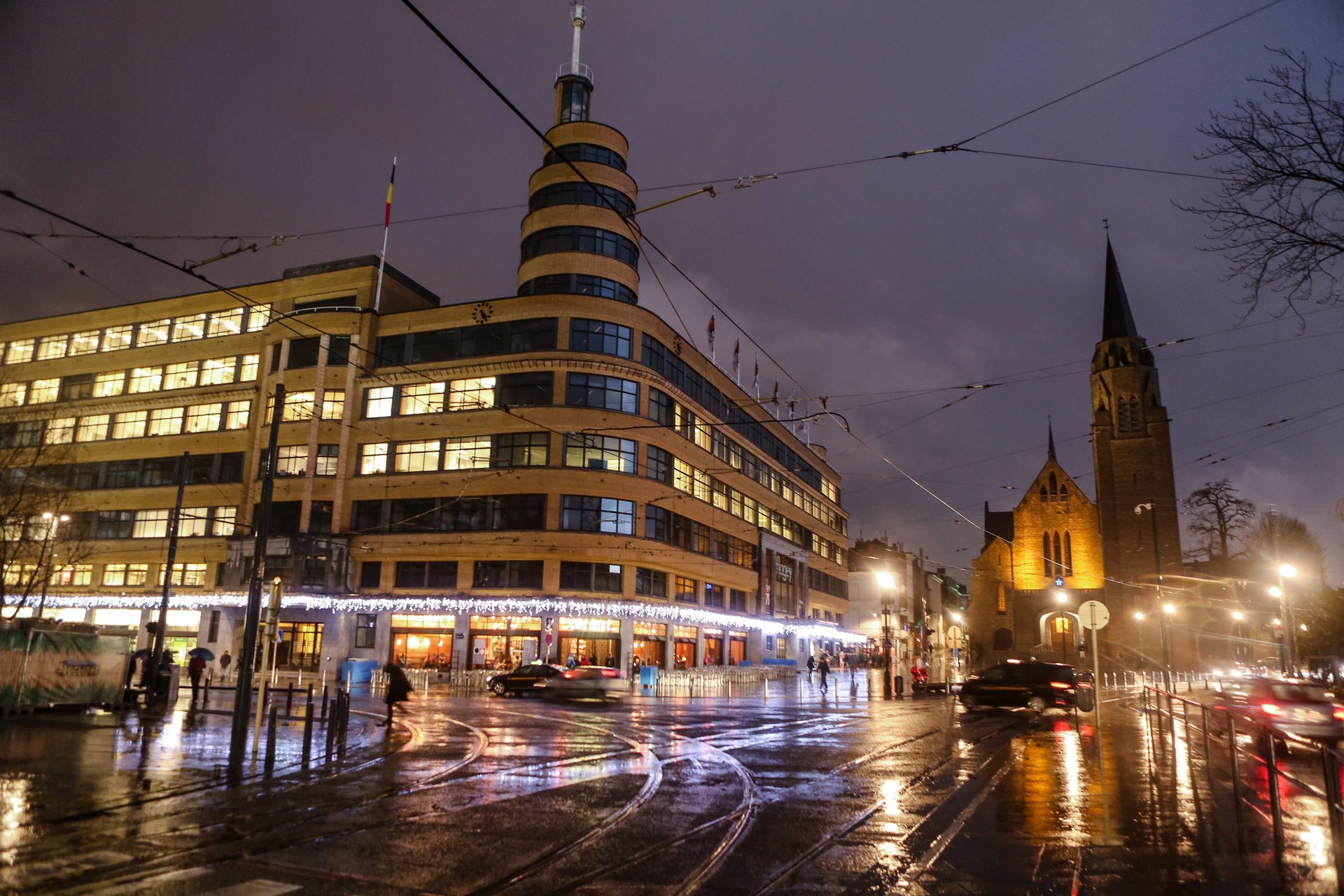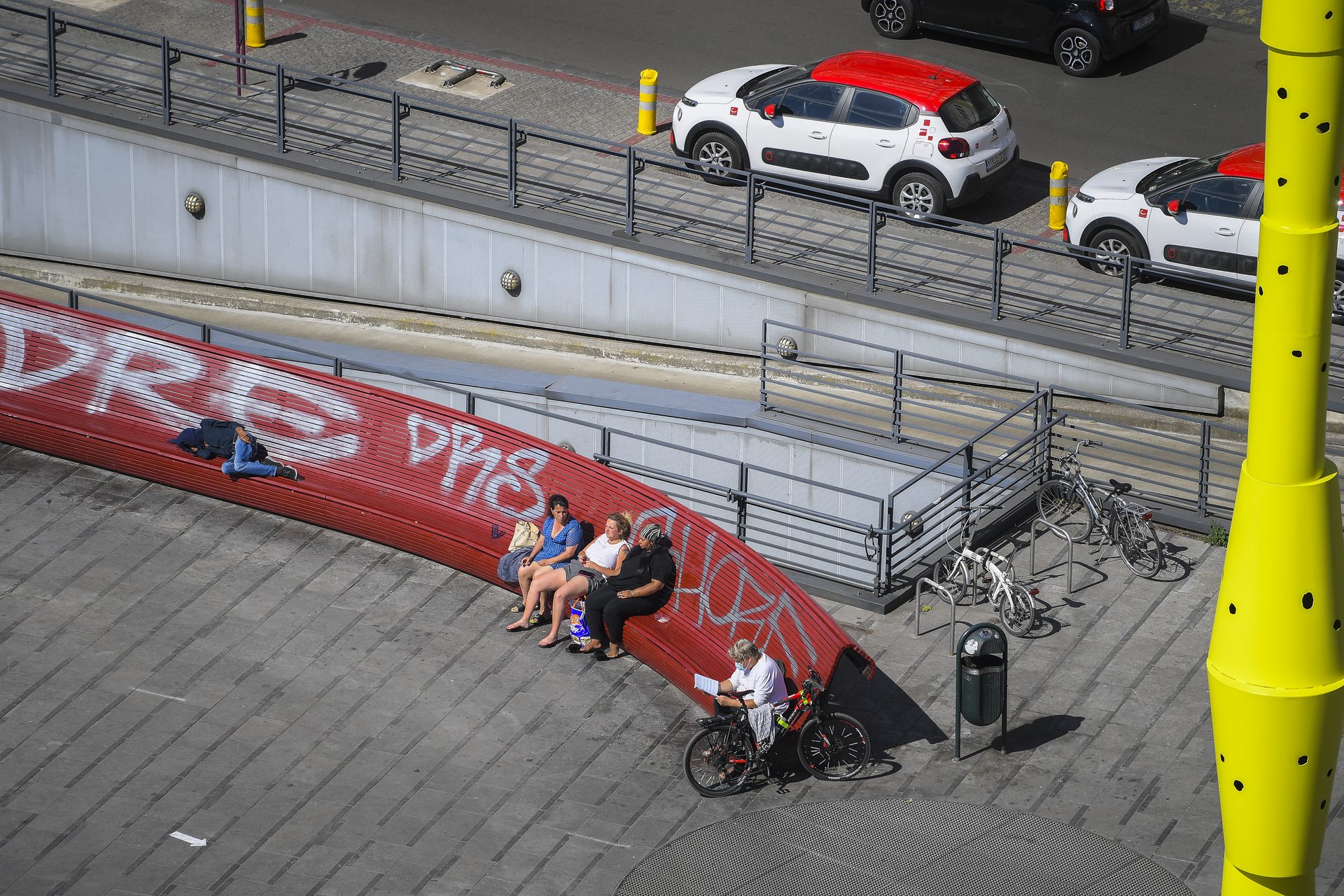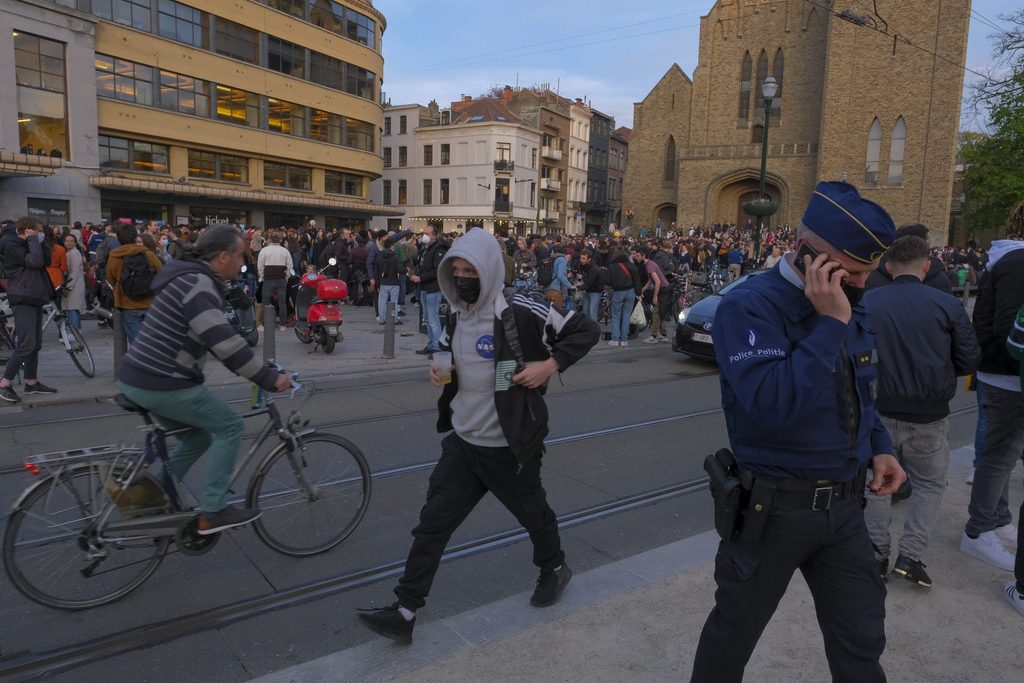The buzzing Place Flagey in the trendy Brussels neighbourhood of Ixelles is popular year-round, with its markets, concerts, fairs, and bars keeping it lively at all hours.
Thousands flock to the iconic square every evening to enjoy drinks, often late into the night. But behind the revelry, business owners and local authorities are locking horns as traders struggle with a wave of violence and nuisance caused by rowdy patrons and rough sleepers.
The situation has become so serious that some are even considering closing for good. After the ordeal of the Covid-19 pandemic, some bars were on the brink of bankruptcy. The iconic Café Belga suffered a €322,643 loss in 2020 alone, according to official tax documents. As public health restrictions eased, businesses on the square enjoyed a significant surge in patrons, but with it aggression and disturbances.
Even before the pandemic, proprietors had complained of the square becoming dirty and dangerous, notably as a result of rough sleeping, hard drug use, public urination and defecation, pungent smells, and aggressive begging.
Now, despite a series of meetings on the municipal and regional level to address the lack of cleanliness and security on the iconic square, business owners tell The Brussels Times that things are getting worse.
A 'lawless' zone
"The problems have actually got worse because cleanliness is always an absolute disaster," said Paul de Béthune, owner of Café Belga. He describes a "complete degradation" in a space that seems "almost a free zone of lawlessness."

Credit: Belga/ Olivier Vin
Gilles Ledure, CEO of the iconic Flagey Building, said that he is forced to spend significant sums on cleaning costs and repairs as a result of urination, drug use, and human faeces. Parts of the building, an art-deco landmark built in 1938 by architect Joseph Diongre, are listed.
“I see damages related to human defecation. People vomit in doorways. There’s trash left, mattresses, bags… Cleaning companies are expensive,” he said. “We have to clean the façade, remove tags, and piles of rubbish. Very often, we replace metal doors, which become corroded [by urine]. No question, there is a degradation of the building.”
Traders largely point to the homeless community as the origin of the disturbances, but nuance that the majority of violence and nuisance is in fact committed by a very small minority. Generally, Roma beggars and homeless people behaved appropriately, several businesses on the square confirm.
“There are more and more homeless people wandering everywhere. That in itself is not the problem. But some of them are also becoming very aggressive. We have some of our customers, especially the female audience and some of the female staff, who no longer feel safe,” said Ledure.
Sexual harassment
Data shows that sexual harassment has become increasingly problematic on the square. A study last year showed that more than half of female customers in bars on Place Flagey have experienced some form of harassment. In January, over 50 women testified to having been forcibly kissed by a man. The suspect also followed a woman back from a bar and attempted to force his way into her home.
One member of staff at a bar on the square, who wished to remain anonymous, said that violent incidents occur almost daily throughout the year. These are very commonly directed towards staff, committed by aggressive beggars. He complained that the Capital-Ixelles police did very little to intervene.
“Locals are insecure because the police never come for those who are troublemakers, who are often drug addicts, homeless, alcoholics, people with psychiatric problems,” the Café Belga owner said.

Credit: Belga/ Laurie Dieffembacq
Violent disruptions and unsanitary behaviour are not limited to the homeless community. Both residents and local businesses tell of unruly patrons, who often urinate in public and shout, sometimes with portable speakers adding to the din.
In a comment to The Brussels Times, a spokesperson for the Brussels Capital-Ixelles Police denied that there was a violence issue on Place Flagey, noting that they had “not observed an increase in attacks or aggressive behaviour compared to other squares or places.”
“Our bikers patrol the areas on a daily basis and will ask people to leave if they are likely to cause nuisance behaviour.”
Hamstrung by overlapping authorities
De Béthune says that problems on the square are compounded by the city's complicated administration. Authority shared between Brussels City (led by Mayor Phillipe Close) and the Ixelles commune (under Mayor Chirstos Doulkeridis) have slowed the response to security and cleanliness concerns.
Changing lightbulbs on the square to keep it illuminated took four years. Cleaning of the square is divided between four authorities – the Brussels Regional Network, STIB, car park operator Indigo, and the municipality. Business owners say that the current level of cleaning is still insufficient.
Local residents, authorities, and businesses have long worked to find lasting solutions to insecurity on the square and the nearby Étangs d’Ixelles. Before the pandemic, local residents and businesses clashed over a temporary ordinance to stop the consumption of alcohol on the square from 01:00. This policy has since been dropped.
For several years, residents and businesses have asked for public urinals to be installed, as elsewhere in the municipality. And though there are plans to “green” the heavily-concreted area with trees and grass by the end of the year, traders are sceptical about the impact this will have on security or cleanliness.
“Is it going to be maintained?” De Béthune asks. “Or will it be a disaster again because nobody waters it? Why not put public toilets here? We have asked for public toilets for years, we now serve as a public toilet for the whole area.”
Related News
- 'Good Move is now taboo': What next for the Brussels mobility plan?
- Man stabbed at Place Flagey on Wednesday evening
- Lacking ambition: Ixelles' circulation plan for Flagey met with disappointment
The situation on the square has become such an issue that is frequently passed around both the regional and municipal governments, often with little resolution. Local alderman from Ixelles political group Liste Objectif XL accuse the municipality of “offloading what is happening on Place Flagey” faced with mounting damages and dangerous conditions.
The square has now become a campaign objective of French-speaking liberal party Mouvement Réfromateur (MR) in Brussels. In Ixelles, MR is advocating wheelie bins, further delegation of cleaning responsibilities and increased surveillance and fines for public incivility to tackle the scruffy image of the square.
For its part, the Ecolo-Groen-PS-Vooruit controlled municipality says that it is “aware” of the problems and has introduced a “night council” of municipal authorities, businesses and local residents to enforce rules and monitor the situation on the square. It also says that it is focusing on supporting the homeless population, instead of pursuing “anti-homeless” policies.

